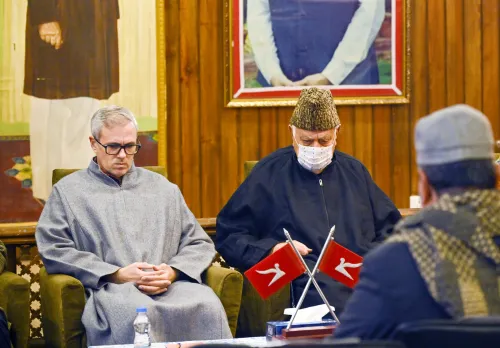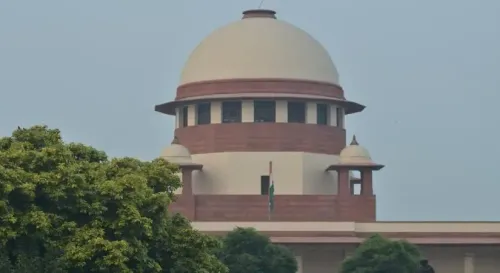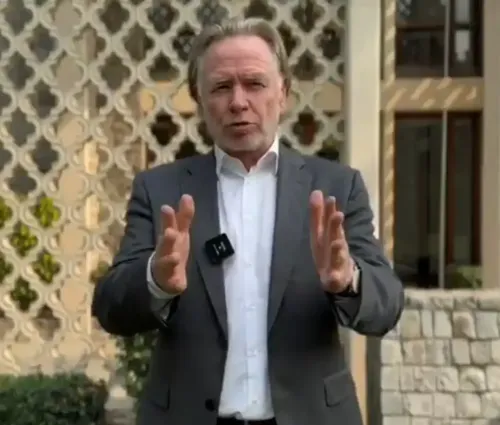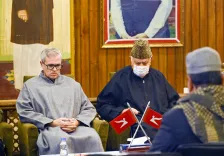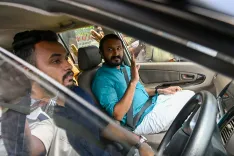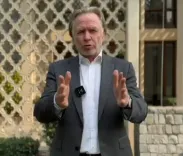India and Germany Strengthen Cooperation in Science, Technology, and Innovation
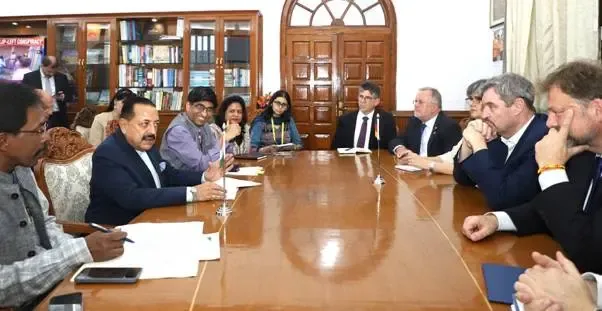
Synopsis
Key Takeaways
- India and Germany are enhancing bilateral ties in science and technology.
- Focus areas include Artificial Intelligence, Biotechnology, and Clean Energy.
- The 2+2 collaboration model promotes joint academic and industrial efforts.
- India has over 3000 biotech startups and is a leading vaccine manufacturer.
- There is a growing number of Indian students in Germany, with calls for more German students in India.
New Delhi, April 13 (NationPress) India and Germany have reiterated their dedication to enhancing bilateral collaboration in science, technology, and innovation during a significant meeting on Sunday between Union Minister Jitendra Singh and Minister-President of the German State of Bavaria, Markus Soder.
A direct bilateral discussion between the two leaders was succeeded by high-level delegation talks led by both ministers.
During the welcoming of the German delegation, Dr. Jitendra Singh highlighted the vast potential for bilateral cooperation in key sectors such as Artificial Intelligence, Quantum Technologies, Biotechnology, Clean Energy, Electric Mobility, Cyber-Physical Systems, and Green Hydrogen.
"India is on a mission-mode initiative under the visionary guidance of Prime Minister Narendra Modi. We aim for economic and sustainable solutions through scientific and technological advancements, and Germany is an ideal partner in this mission," stated Minister of State (independent charge) for Science and Technology Jitendra Singh.
He praised the Indo-German 2+2 collaboration framework that fosters joint initiatives between academia and industry from both nations, describing it as a groundbreaking step toward establishing innovation-driven ecosystems prepared for the future.
"The 2+2 collaboration represents a forward-thinking model. It unites universities and industries from both countries to address global challenges through innovation, co-development, and commercialization," asserted the minister.
Singh emphasized India's exceptional growth in the biotech sector, with more than 3000 startups and its position as the largest vaccine producer globally. He pointed out the importance of the recently sanctioned BIOe3 policy, which aims to enhance Energy, Economy, and Employment through biotech innovation.
He outlined India's rise as a biotech hub with over 3000 startups and the recent introduction of the BIOe3 policy, designed to promote Energy, Economy, and Employment via biotech advancements.
The Science and Technology Minister noted that India's Space-Tech and Nuclear sectors, now open to private enterprises, present significant collaborative possibilities. He also mentioned India's ranking as 3rd worldwide in startups and unicorns, making it a vibrant hub for technology partnerships.
"India's academic ties with Germany are deepening, with over 50,000 Indian students enrolled in German universities—mainly in STEM fields—an increase that has tripled over the last seven years," Jitendra Singh remarked.
He urged for a reciprocal rise in German students studying in India, particularly in Oriental Studies, Indian Culture, and Traditional Knowledge Systems.
"Germany has become a preferred academic destination for Indian youth. We now anticipate seeing more German students delve into India’s intellectual legacy and scientific prowess," he added.
The German delegation included Dr. Markus Soder, Dr. Philipp Ackermann, the German Ambassador to India, and other senior officials. The Indian team featured Dr. Abhay Karandikar, Secretary of the Department of Science and Technology (DST); Dr. Praveen Somasundaram, Head of International Cooperation; and Dr. Alka Sharma, Senior Advisor, Department of Biotechnology, who also took part in the discussions.

